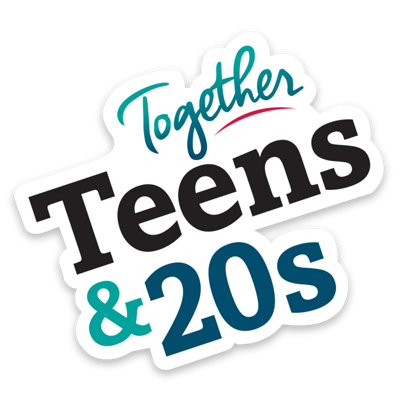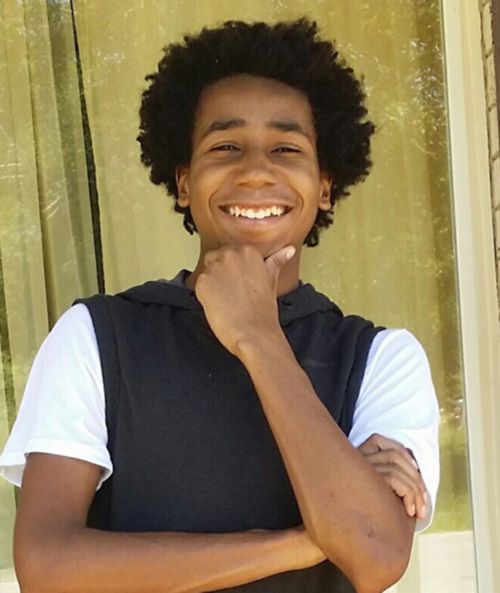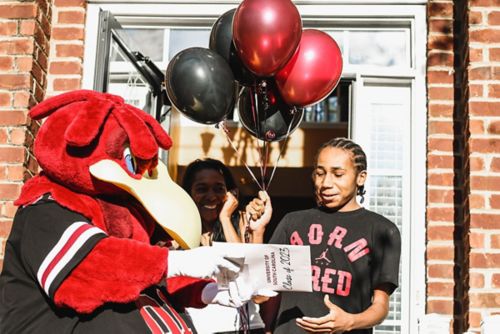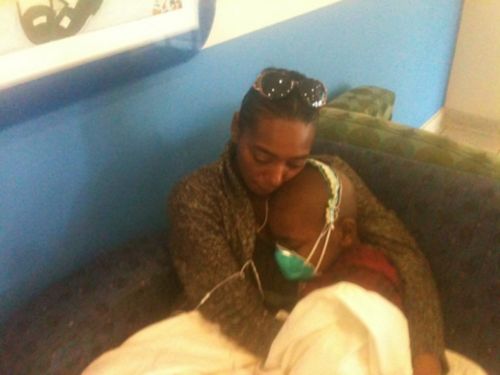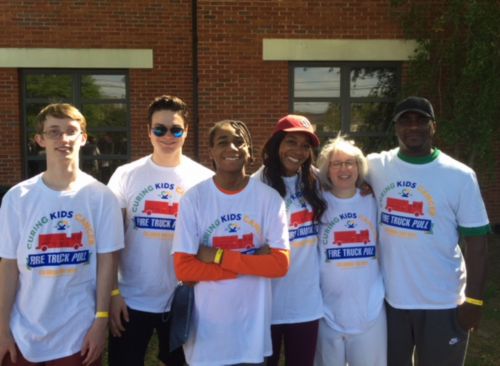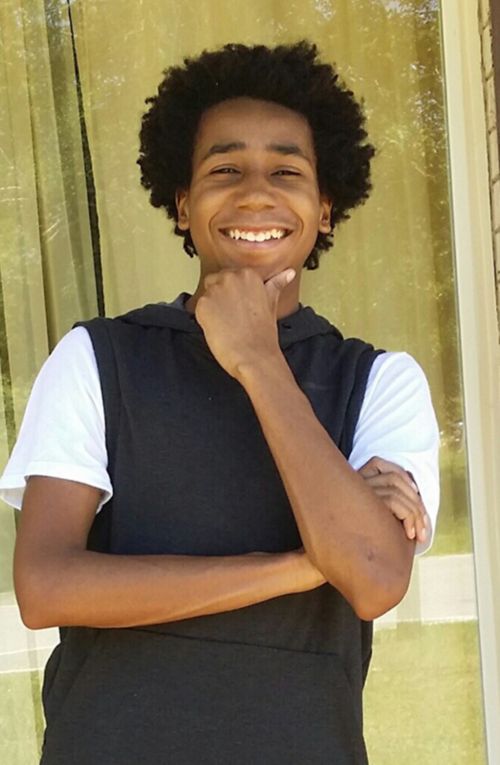MJ has wanted to be a doctor most of his life.
As a child, he had a front row seat to the medical profession. Diagnosed with a brain tumor called pineoblastoma at age 11, MJ had brain surgery, radiation, chemotherapy, and a hematopoietic cell transplant (also called bone marrow transplant or stem cell transplant.)
Today MJ is 18 and a high school senior. He recently learned he has been accepted to all three colleges he applied to – Clemson University, Furman University, and the University of South Carolina.
The journey to this point has had its struggles. MJ still has challenges. But he continues to persevere.
When MJ learned of his brain tumor diagnosis, he was president of his 5th grade class and an avid football and basketball player. He considered himself pretty outgoing.
His brain tumor and cancer treatments changed the course of his life.
Before he got sick MJ was starting to pull away from his mother and establish some independence. “When he got sick, he was tied to my hip again,” Lisa said.
After having brain tumor treatment, MJ wasn’t able to play sports unless he had rigorous physical therapy.
Instead, he decided to focus on his education. He wants to be a pediatric oncologist. He is also interested in sports management. He plans to double major in biological sciences and sports management in college.
Challenges in school
MJ missed his entire 6th grade year while he was undergoing treatment. Meanwhile, his friends and classmates back at home moved on with their lives.
He returned to school in the 7th grade, although in many ways he was still a 5th grader. Everyone else his age had already completed a year of middle school.
The transition to middle school can be difficult for any teen. It had even more challenges for MJ. Making friends was tough.
“It was kind of like I had been absent so long, people didn’t remember me anymore,” MJ said. “I developed most of my relationships playing sports and with classmates at my elementary school. I was 1 ½ - 2 years behind. I missed milestones other kids had already accomplished.”
For example, other students already knew how to use lockers. They had learned to plan their day around switching classes.
MJ’s cancer treatments had long-term effects that affected his learning. He struggled with low energy. His ability to process information was slower than before treatment. This condition is called “chemofog” or “chemobrain.” It causes thinking and memory problems in some patients who have had chemotherapy.
MJ had a classroom accommodations plan, called a 504, which allowed him extra time on schoolwork. But he said sometimes he didn’t get additional time for assignments.
Things didn’t get better in high school.
“The first semester of 9th grade was a never-ending cycle of assignments either being late or not being done well,” MJ said. “I was constantly making up assignments because I was still going to the hospital every 3-6 months.”
MJ also had problems with his eyes. Radiation treatment had damaged his tear ducts. His eyes watered heavily and produced a green discharge. His eyes sometimes had a burning sensation that affected his vision.
MJ looked normal. Everyone thought he was fine. But he wasn’t. He went from being a straight-A student to making Cs. His mother was at the school frequently to discuss MJ’s needs and challenges.
The family decided homeschooling would be the best option. MJ wanted to get into a good college. Homeschooling allowed him to focus more on his studies.
MJ’s mother, Lisa, left a 20-year career in nursing to teach MJ. She spent the first several months helping him catch up. He went to private schools for the laboratory portion of science classes. Lisa was able to pull from her medical background to enrich his science studies. In English, they read classics like A Tale of Two Cities, 1984, and Animal Farm.
“People tend to see childhood cancer in extremes. When children survive, everyone is happy. If they don’t, that’s so sad,” Lisa said. “But people don’t see the journey. It changed my whole life. That’s not a bad thing. I’m doing things I always wanted to do. You can do anything. You can have hope. Hope is 80% part of the formula. It humbled us.”
But MJ was isolated. Lisa became isolated as well. “He went through a sadness,” Lisa said. “I was also worried about hovering too much and pushing him too hard.”
Learning perseverance
But even though he has had struggles, MJ has continued to thrive. His experience has made him stronger in many ways. He spends his time helping others. MJ likes to volunteer his time with non-profit groups.
He serves as a mentor for students at his former elementary school. He serves on the Student Council of the South Carolina Association of Independent Home Schools. He volunteers with his church and has been active in raising awareness and funds for cancer.
One of his favorite activities is volunteering with a group called Ausom – a physical activity program for children with autism. The group sets up activities such as bouncy houses and supervises the children while they play. MJ loves working with children.
“It’s sort of like therapy,” MJ said. “The kids make you laugh. They make you forget about what’s going on right now. You remember what it’s like to be their age.”
Lisa has gained strength through her experiences with MJ. “With each mountain we climb, we know the next one will be easier. Faith, hope, and love has gotten us through.”
Looking ahead
MJ’s eyes are focused on the future. Right now he is making plans for college. He is aware of his challenges and is working with the colleges he is considering to see how they will help him succeed. Colleges have offices especially for students with disabilities. These offices work with students and faculty to make accommodations.
MJ has a hard time remembering directions, which may be a difficulty when navigating his way on campus. He has a hard time recalling passwords and keeping up with materials. He still needs extra time on assignments. But he is advocating for what he needs. MJ advises other cancer survivors who have academic challenges to do the same.
“Visit the colleges you want to go to,” MJ said. “Visit the disability departments of each college. Develop a good foundation with them before you get to college. Sit down with them and say ‘what can you do to help me be successful in school?’”
Teen and young adult patients shouldn’t be afraid to speak up for themselves, MJ said.
“Learn how to advocate for yourself,” MJ said. “Learn how to take charge of your life. Learn how to steer things the way you want them to go. If you need something, speak up for yourself. Make sure you get what you need. The treatment – what happened has happened. Find ways to make life what you want. You can do anything. You still have plenty of potential.”

